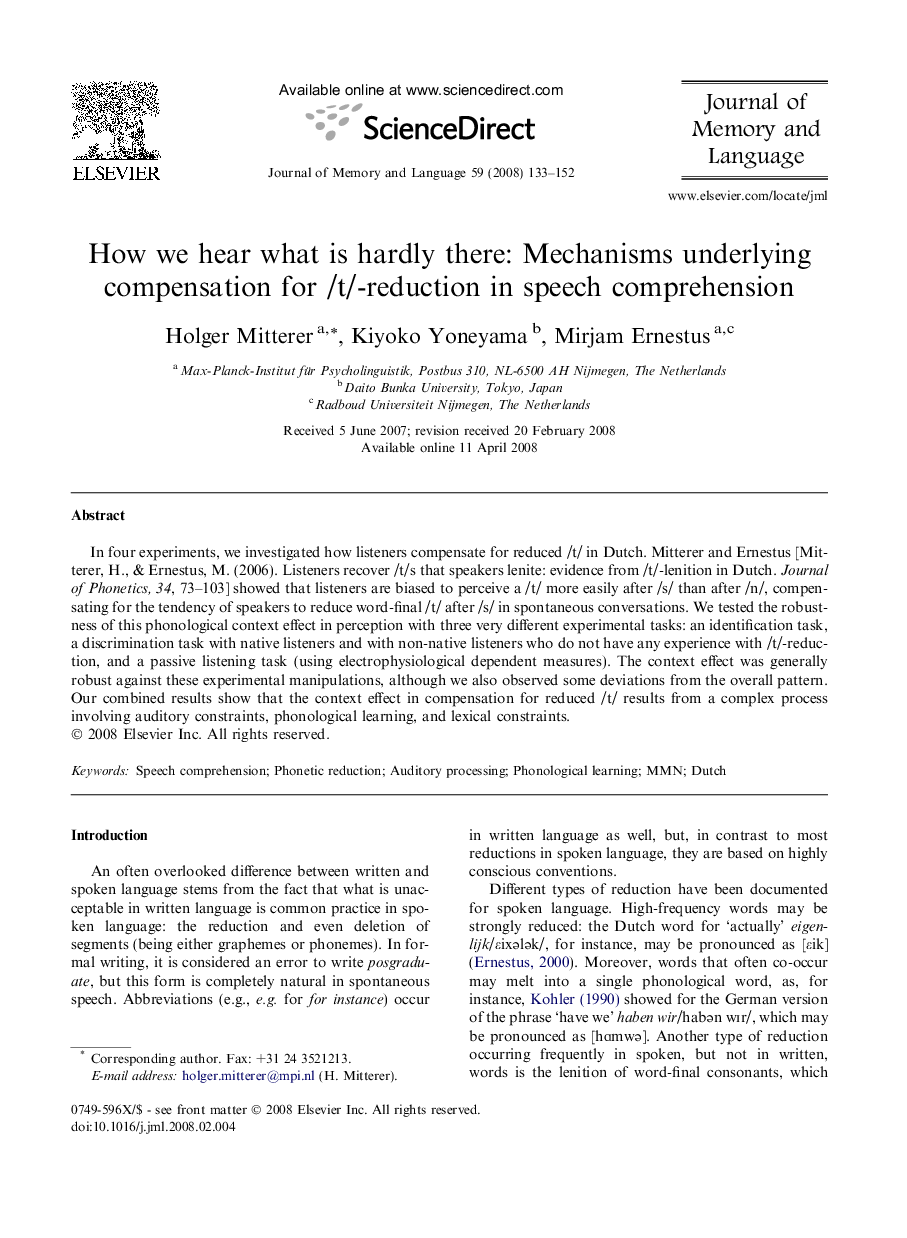| Article ID | Journal | Published Year | Pages | File Type |
|---|---|---|---|---|
| 932176 | Journal of Memory and Language | 2008 | 20 Pages |
In four experiments, we investigated how listeners compensate for reduced /t/ in Dutch. Mitterer and Ernestus [Mitterer, H., & Ernestus, M. (2006). Listeners recover /t/s that speakers lenite: evidence from /t/-lenition in Dutch. Journal of Phonetics, 34, 73–103] showed that listeners are biased to perceive a /t/ more easily after /s/ than after /n/, compensating for the tendency of speakers to reduce word-final /t/ after /s/ in spontaneous conversations. We tested the robustness of this phonological context effect in perception with three very different experimental tasks: an identification task, a discrimination task with native listeners and with non-native listeners who do not have any experience with /t/-reduction, and a passive listening task (using electrophysiological dependent measures). The context effect was generally robust against these experimental manipulations, although we also observed some deviations from the overall pattern. Our combined results show that the context effect in compensation for reduced /t/ results from a complex process involving auditory constraints, phonological learning, and lexical constraints.
